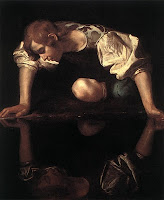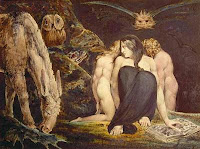 Tired with all these,
Tired with all these,
for restful death I cry,
As to behold desert
a beggar born
~ William ShakespeareI am now capable of feeling humiliated, vexed, without any other feeling in me than the feeling of this state, and of remaining there motionless, my understanding having wiped out my reflex attempts at flight.
~Hubert Benoit What should I do when I have been humiliated, violated or disgraced by someone else’s actions? Does it make any difference whether the action was intentional, or not?
Objectively, there isn’t any difference. That is why, from a karmic point of view, one is responsible for the consequences of even unconscious actions. Subjectively, however, at the level of intentionality, there is a difference. When a harmful action is undertaken knowingly or, worse, deliberately, then, in addition to being responsible for its consequences, one is morally accountable as well.
When I trip over someone’s foot, it is relatively easy for me to pick myself up, brush off the incident and move on. But when someone intentionally trips me, I naturally feel a kind of indignation and a corresponding sense of entitlement to something like an apology. Objectively, nothing has changed. Subjectively, the two incidents are not the same.
Moral indignation seems justified in the latter case. In that situation, as in any situation where I have been morally wronged, it seems right, if not heroic, to call out or rebel against the infraction and even demand that justice be served. Shakespeare’s Sonnet 66 quoted above is written in the troubadouric style of
Enuig, which is a kind of poetic lament against injustice that feeds on this sort of moral indignation.
But doesn’t moral indignation complicate how we respond to a humiliation by prolonging the agony? Granted I am responsible for my actions and accountable for my intentions, does this mean I have to wait for others to take responsibility and be accountable to
me? What good does that do me?
Anyone who has felt betrayed or abused by another person knows with what urgency we seek redemption in the form of an acknowledgement of wrongdoing. Although we may be temporarily placated by such an acknowledgement, it only provides a false sense of security, one that comforts us in the illusory sense of power over our lives when, ironically, it is the claim to be in control, like the now-ingrained belief in personal “rights”, that makes us vulnerable to feelings of violation, betrayal or indignation.
In
Beyond the God Delusion, Albert Low writes, “if we had not made the claim to be in control, to be that around which it all must revolve, nothing could touch us, nothing could betray us” (
Thy Will Be Done, p.43).
This claim to be that around which all revolves (what Albert Low calls “the center”) is the real source of our humiliation. We are vulnerable only as long as we cling to this, like an ember vulnerable to burst into flames at the slightest gust of wind. As he continues:
“If some force threatens the false center, the wound of separation becomes evident and greater force would be necessary to hold the center in place. (…) What was simply a smoldering fire bursts into a raging furnace.” (ibid., p.53)
A famous haiku by Ryokan written after he had been robbed of every last one of his possessions from his modest dwelling goes
The thief left it behind:
the moon
at my windowRedemption lies in giving it all away.


















